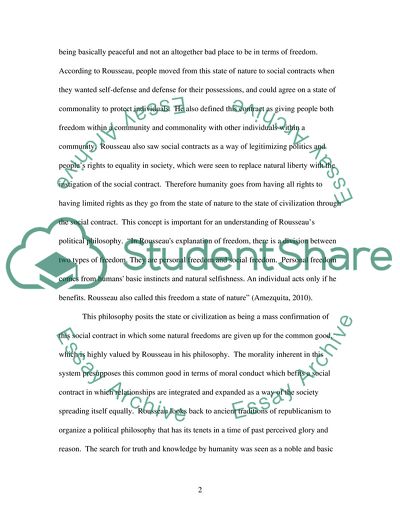Cite this document
(A Reverence for the State of Nature Essay Example | Topics and Well Written Essays - 1500 words, n.d.)
A Reverence for the State of Nature Essay Example | Topics and Well Written Essays - 1500 words. https://studentshare.org/philosophy/1733572-human-nature-and-ideal-government-compare-and-contrast-of-the-following-authors-locke-rousseau
A Reverence for the State of Nature Essay Example | Topics and Well Written Essays - 1500 words. https://studentshare.org/philosophy/1733572-human-nature-and-ideal-government-compare-and-contrast-of-the-following-authors-locke-rousseau
(A Reverence for the State of Nature Essay Example | Topics and Well Written Essays - 1500 Words)
A Reverence for the State of Nature Essay Example | Topics and Well Written Essays - 1500 Words. https://studentshare.org/philosophy/1733572-human-nature-and-ideal-government-compare-and-contrast-of-the-following-authors-locke-rousseau.
A Reverence for the State of Nature Essay Example | Topics and Well Written Essays - 1500 Words. https://studentshare.org/philosophy/1733572-human-nature-and-ideal-government-compare-and-contrast-of-the-following-authors-locke-rousseau.
“A Reverence for the State of Nature Essay Example | Topics and Well Written Essays - 1500 Words”. https://studentshare.org/philosophy/1733572-human-nature-and-ideal-government-compare-and-contrast-of-the-following-authors-locke-rousseau.


